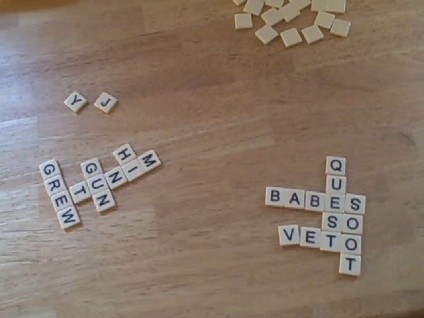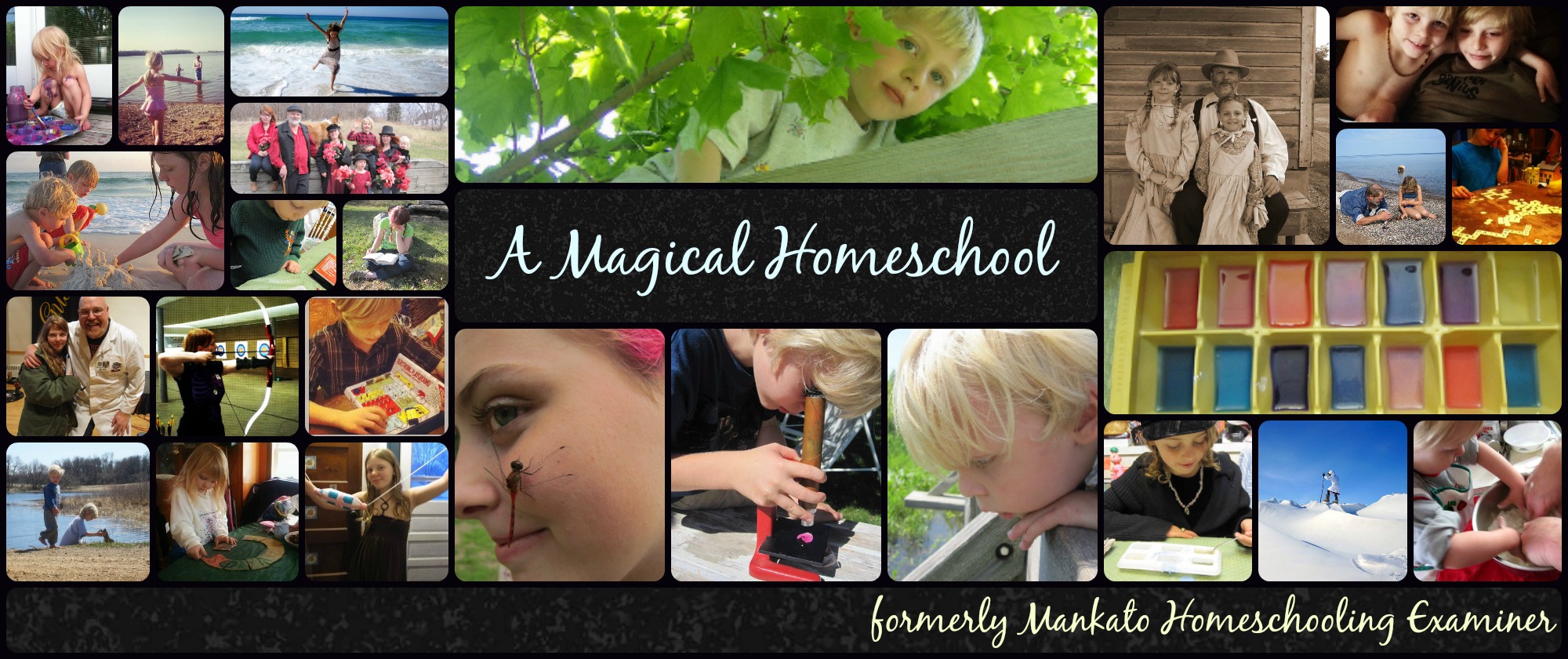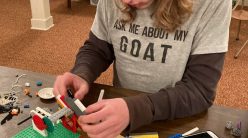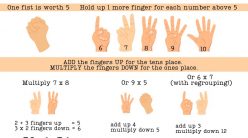Okay, so you crossed that first homeschooling hurdle and your child is reading well. Chances are, spelling is another story — and it will be for at least a couple of years.
Although reading and spelling seem to go hand in hand, most children fully grasp reading long before they’re spelling well. This is normal, and is not in any way an indication that your child will be a poor speller later on.
You can both suffer through spelling programs and curricula, but it’s not necessarily something your child needs. It’s quite likely that your child will get good at spelling at about the same age whether you use those programs or not.

Keep in mind that there are ages when skills just sort of “click” for children, and time spent on those skills before then will mostly lead to frustration.
Think back to toilet training, for example. If you tried when your child was 18 months, chances are you spent months with accidents and training. On the other hand, if you waited until your child was older and ready, the skill was likely mastered in a weekend.
The same is true with reading. Plod through reading programs with a child who doesn’t yet grasp it, and you’ll spend hundreds of hours of unnecessary work together. When your child finally starts to read, you’re likely to think the curriculum has paid off at last, when it’s generally a case of it finally clicking into place.
Spelling works the same way. In the beginning, children can really flounder with spelling. Even very good readers often have atrocious spelling for quite a while before it starts to all click.
This is not true for all children, of course, as all children are different. However, the majority of the time, children in a literature-rich environment who regularly interact with words and letters in a fun way will pretty naturally learn everything they’d learn in the artificial environment of a structured curriculum. It may just not be on the same schedule.
That said, there are lots of ways to help your child on that journey to good spelling.
Here are twelve.
- Don’t correct spelling in creative writing such as stories and poems, at least on first drafts. The worst thing to do right now is to make kids embarrassed or frustrated in their writing, which can lead them to stop writing at all. See Wikipedia’s page on Inventive Spelling for the arguments for and against correcting young children’s spelling. Also see this article from Mothering Magazine about the benefits of inventive spelling. This is especially true for young writers.
- Print out word searches, crosswords and other word-related activities, especially dealing with your children’s interests.
- Encourage your children to use spell check. While some see it as a crutch, this is an excellent way to instantly see what words you’ve been misspelling. This is harder for very young children who are just learning to spell, as their words may be spelled so wrong that spell check may not be able to guess the right words. This is a great tool for older spellers, though.
- Play word games like Scrabble, Boggle and Bananagrams.
- Try index card stories. Together with your child, write up a whole slew of words (nouns, verbs, articles, adjectives, etc.) on index cards, one on each. Then make up poems or stories with the cards. As your child needs filler words, spell them out for her to write on new cards.
- Write badly spelled letters for your child to correct. My daughter Anna loved this exercise when she was younger. I’d write her stories or letters in her homeschool journal and then I’d write, “I made 10 spelling errors in this letter. Can you find them all?”. She got to use the red pen on me and often had to really search to figure out which words I had wrong.
- Use closed captioning. Turn the closed captioning on shows your kids are watching for a sneaky way to reinforce spellings.
- Dictate. If your child is not spelling well, don’t put him on the spot to spell yet. Put him in charge of writing up lists (shopping lists, birthday wishes, things to do this weekend, etc.) and just spell them out. The more you do this, the more your child will pick up about spelling rules and remember the spelling of individual words.
- Do projects that involve words. Lapbooks, collages, ransom note stories (where the child cuts out words from a magazine, glues them onto a paper and then writes in the filler words to make a story) and other homeschooling projects that involve words will all help reinforce spelling.
- Play hangman.
- Read, read, read. The more children read, the more they start to soak up spelling words — even when we swear they’re not. Remember that picture books often have more sophisticated vocabulary than early reader books, so don’t push kids to replace picture books with more “educational” ones.
- Keep lots of words in your child’s environment. My daughter spelled “aggravating” the other day and said she picked up the spelling from a web site she’s a member of that has a “how aggravating” section. I still remember learning how to spell the words “vitamin” and “homogenized” from milk cartons when I was little.
Also see 20 Fun ways to practice spelling words for lots of fun ways to practice certain lists of words.
Want to find some lists of typical spelling words for a grade level? Just google the grade and spelling lists. For instance, here are spelling words for second grade in one Minnesota class.
Remember, spelling will almost always come later to children than reading and it generally does start out pretty creative.
The single biggest way to help your children excel at any subject is to make it fun and help them feel successful. Sometimes the easiest way to do that is to just give it time. Games and other fun activities will certainly help too, though!
***
This article originally appeared on examiner.com.






One thought on “12 Ways to improve your child’s spelling”-
The Lazy Homeschooler's Guide to Spelling | Magic and Mayhem
(October 20, 2022 - 5:49 pm)[…] (You can read the rest of the article here: 12 Ways to improve your child’s spelling) […]